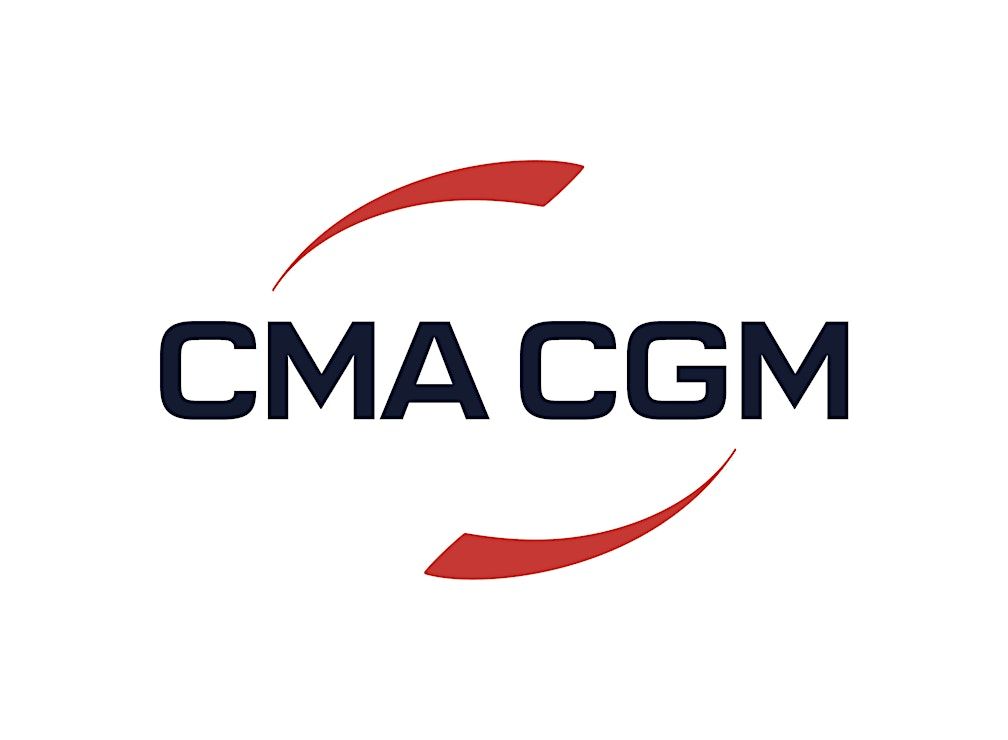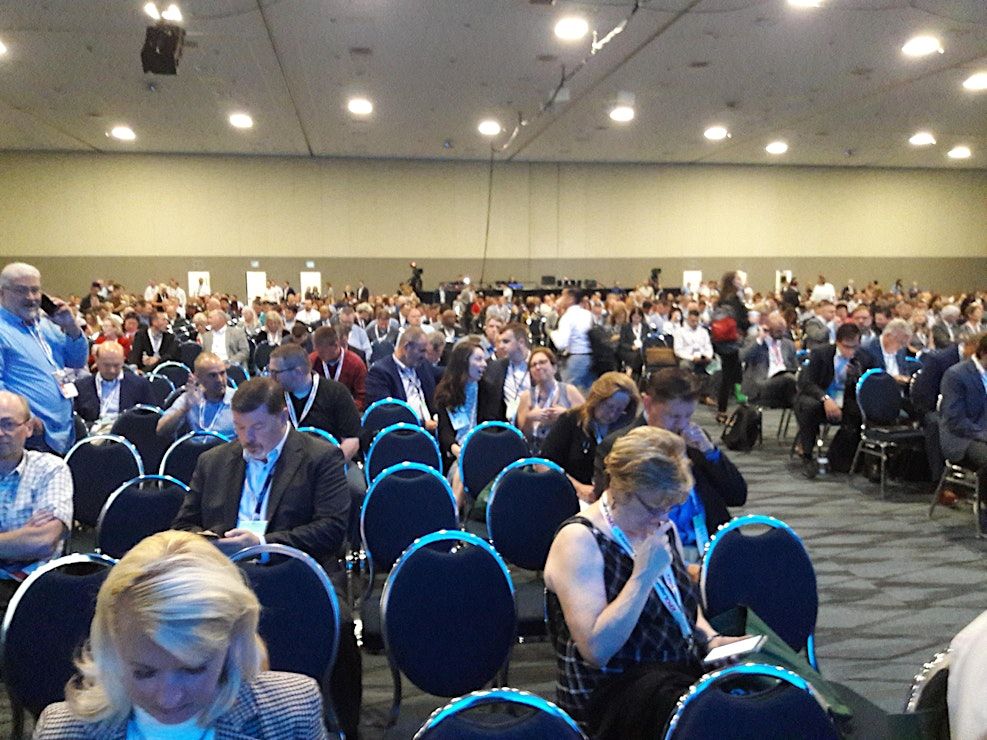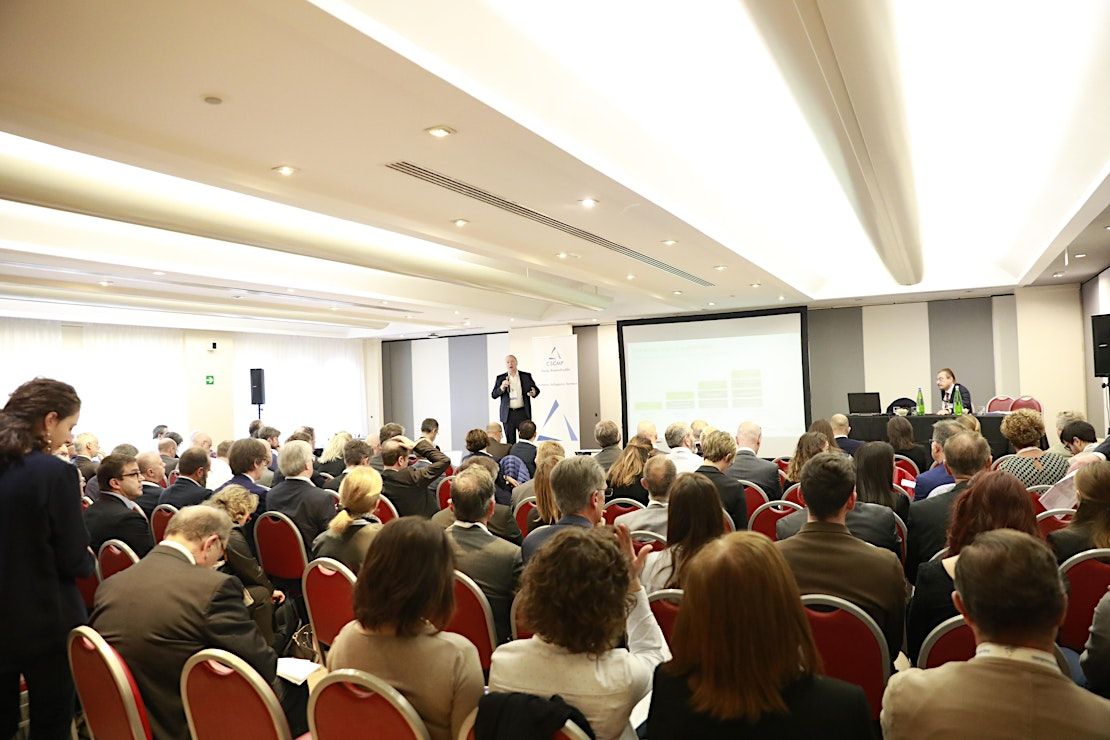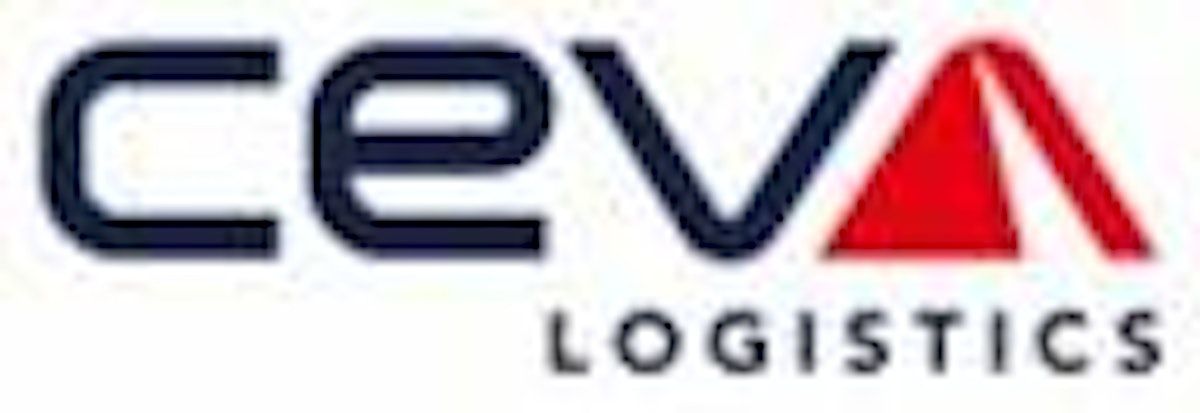
About this Event
IX CSCMP EUROPEAN CONFERENCE 2025
Supply Chain Edge Europe
Supply Chain Transformation: From Linear to Circular Economy
** EUROPEAN RESEARCH SEMINAR (ERS)
ON LOGISTICS AND SCM
VERONA – JUNE 19th-20th, 2025 Organized by: Council of Supply Chain Management Professionals Italy RT and University of Verona - Dipartimento di Management
The European Conference is in English. Attendees will have a month on demand access to recordings.
CSCMP EUROPEAN CONFERENCE : The Professionals' Supply Chain Conference in Europe
Special discount for new members to join CSCMP before the European Conference: code EURNEW25
EUROPEAN RESEARCH SEMINAR :
Academics can submit their papers on : www.ers-conference.org and present their works in Poster Session as well
Preliminary program (at present)
Major speakers: John Gattorna, Ted Stank, Omera Kahn, Bart De Muynck
Tracks & Panel discussions:
Track Supply Chain Management (SCM): In today's dynamic global environment, supply chains face unprecedented challenges. From geopolitical instability and economic volatility to climate change and evolving customer expectations, navigating these complexities requires innovative solutions and a robust, resilient, and sustainable approach. This Track shows strategies and experiences in design and transformation of supply chains
Panel discussions:
SCM-1 Supply Chain (re) Design
Supply chain networks born in globalization age do not fit anymore with this VUCA environment. Nearshoring, Friendshoring and Re-shoring require years to be in place, so what to do to cope with rising costs and uncertainity?
Track Artificial Intelligence & Digital Supply Chain (AI): For years Information Systems have played a major role in Supply Chains success. Digitalization, End-to-End Visibility and Artificial Intelligence tools are now boosting performance and asking for investments and new skills.
Panel discussions:
AI-1 Digitalization in End-to-End Supply Chains
Flexibility and cost reduction do not match easily, so we need to orchestrate all players with low effort, reduced latency and costs. Control Towers, Visibility, Data Integration and Unified Data Platforms. And, of course, use of AI to ease of Data Standardization!
AI-2 AI in Supply Chains
TAI is on the hype, but it is among us since last century. What new advantages we can get using AI now? Here are first hand experience from Leaders in AI in SCM implementation
AI-3 Digitalization of Transportation
To meet the new requirements for flexibility, economic and environmental sustainability, there is an urgent need for innovative processes and business models. Technology is not enough: an operational paradigm shift becomes indispensable
Track Planning & S&OP (PLAN): We plan and act in a VUCA world. New tools, based on AI and other IT levers, promise to improve Forecast Accuracy, Plan Attainment and reduce costs. Our Speakers and Panelists will share solutions, experiences and best practices, in a two-way approach with attendees.
Panel discussions:
PLAN-1 S&OP, IBP and Decision Centric Planning: how to cope with VUCA world
S&OP was born years ago, its evolution is IBP but not so widespread. Nowadays companies often do not get results as desired. Usually, the real driver of results id Human Factor. So, to weather rising disruptions, harvest hidden opportunities and reduce costs in a VUCA world we need to focus on People and Decisions. And Speed!
Track Warehouse (WH)
The Future of Warehousing: Between Innovation and Human Touch
Panel discussions:
WH-1 Productivity, Flexibility and Effectiveness in Warehouse Operations thru Automation
Track Transportation & Delivery (T&D)
Geopolitics, infrastructural stress and the market crisis are causing the transport system a major slowdown in achieving the 2030-2050 goals on environmental sustainability, but, even more seriously, they create uncertainties for companies, which must find new innovation-based tools to ensure continuity of operations and adequate flexibility.
Panel discussions:
T&D-1 European Ports; Flows, Technology and New Challenges
New global geopolitical tensions, the unknown effects of the US strategy, evolution of conflicts in strategic nodes of global maritime flows, create new expectations and new risks for the global port system. Ports must increasingly be open to create new relationships and in understanding market dynamics.
T&D-2 Intermodal Transportation: Issues and Benefits
The strong delay in achieving modal shift targets in Europe raises big questions. The need for intermodality clashes with a deep crisis in Europe concerning infrastructure as well as the differentiated, but sometimes ineffective, incentive policies of the different countries.
T&D-3 Road Transportation: is Visibility a Challenge?
Track Sourcing & Procurement (PROC)
In a world where everything is changing rapidly and unexpectedly, speakers and panelists will discuss the hottest topics today for Chief Procurement Officers: How to maintain the best strategic alignment with the Business; How to deal with disruptions and trade wars that are on the horizon; How to manage regulatory obligations by transforming them into opportunities; How to exploit technological innovation and in particular AI
Panel discussions:
PROC-1 The impacts of the European Directives on Sustainability and Circular Economy in Procurement (from CSRD through CBAM to CSDDD … and beyond!)
The EU is pushing Sustainability via Directives. First CSRD (Corporate Sustainability Reporting Directive), then CBAM (Carbon Border Adjustment Mechanism) and latest the CSDDD (Corporate Sustainability Due Diligence Directive). What are the experiences on the CSRD? CBAM, we are in the transition period, which are the feedbacks? And finally, the CSDDD will impose binding obligations to check the global value chains for human rights and environmental risks and harms.
The burden of activities related to the requested checks and due diligences is higher and higher. What are the challenges for the Procurement organizations? Is it possible to manage all these mounting regulatory obligations transforming them into business opportunities?
PROC-2 Digitalization in Procurement. AI Tools to improve Procurement and reduce Process Costs
The deployment of AI is changing the framework of tools to support procurement activities and their contribution to its efficiency and effectiveness. We are starting to see solutions implemented effectively in different areas; from the production of document summaries to support in defining purchasing strategies. How to select and implement AI tools of value for our organization having correctly defined the expected results.
PROC-3 Category Management in a VUCA World
Everything is changing rapidly and more radically, so “black swans” are becoming normal. In this context, companies cannot give up the value brought by a strategic approach to purchasing that is strongly aligned with the business. How to organize? We share experiences to understand which processes and tools have proven effective to date.
Track Supply Chain Finance (SCF)
Panel discussions: Supply Chain Finance: new applications and benefits
Track: Circular Economy & Sustainability (SUST)
This track focuses on how logistics and supply chain processes can be reimagined to support circular economy initiatives. It highlights strategies for closing the loop through minimize resource, waste minimization, and resource recovery. Practitioners will explore actionable solutions for integrating CE principles into supply chain design to achieve sustainability and decarbonization goals.
Panel discussions:
SUST-1 Is Sustainability sustainable?
Sustainability is at the center of the stage: no question about it.
But are we really understanding in full its intrinsic nature of “good for the planet, good for the people, and good for the profit)? Can these “3Ps” be simultaneously achieved way? Are our business models (from product design, to sourcing, manufacturing, distribution and recycling) fit for a sustainable transition from a linear to a circular economy compliant to all ESG’s requirements?Is Sustainability sustainable?
Track Consumers & Customer Centricity in SCM (CUST)
Supply chains play unequivocal role in shaping the customer experience. A future supply chain will address the following challenges: Customization and speed-to-market, Micro-segments, Accelerated innovation, Trust and authenticity, Channel consistency
Panel discussions:
CUST-1 Customer Centric Supply Chains
Customer Centric Supply Chains: In an engaging roundtable discussion, the focus is on customer-centric supply chain strategies, featuring insights from the Supply Chain Manager of L'Oréal. The conversation explored how prioritizing customer needs can enhance supply chain efficiency, drive innovation, and improve overall customer satisfaction in the beauty industry
Track Supply Chain Risk Management & Cybersecurity (RISK)
Panel discussions:
RISK-1 Enterprise Risk Management meets the CSRD
The ISO9001 fosters risk-based thinking and Enterprise Risk Management, and end-to-end supply chains (i.e. value chains) are a major source of risks and opportunities. The CSRD/ESRS framework ask for Double Materiality Assessment (DMA), that entails assessing Impacts, Risks and Opportunities (IROs) along the entire value chains. This shapes the whole sustainability reporting content. How these approaches can be effectively combined, avoiding discrepancies or incongruences?
RISK-2 Supply Chain Risk Management & Trade Wars
In a more conflictual international context, trade wars and barriers to free trade make it important to carefully monitor potential disruptions and managing all required compliance regarding international suppliers. The free trade of goods is no longer a realistic prospect. How should companies organize to effectively manage the growing complexity of import and export regulations? Furthermore, the need to carefully manage the Cybersecurity of suppliers at all levels of the Supply Chain has also become important.
Track Human Resources, Competencies & Leadership (HR)
Recent years have undoubtedly been of great discontinuity: organizations are facing a continuing state of unprecedented pressure, volatility and uncertainty, alongside the challenges posed by new generations entering the work market. Radically different operating models, leadership styles and competences are needed, which are based on Human Resources who are increasingly accustomed to managing "by purpose" and not "by individual tasks": the ability to interpret new situations, take coordinated initiative and swiftly decide even in the absence of certain and unambiguous information becomes a fundamental skill and a critical survival and success factor.
Panel discussions:
HR-1 New Leaders and Professionals Wanted
The “New Normal” of Volatility, Uncertainty, Complexity and Ambiguity is here to stay (and to get even worse). This asks for redesigning planning, decision-making, information management and leadership styles. Effectively facing the speed of technology and business eco-system change requires an enlarged skillset that goes beyond “Hard skills”. Are we, as leaders and professionals, ready for the fray?
HR-2 Women and SCM: is there a Supply/Demand balance?
Besides being a staple in the ESG’s “Social” topics, Gender Equality is an ethical and business must for forward-looking and system-thinking companies. Supply Chain Management heavily relies on Science, Technology, Engineering and Mathematics (STEM) matters. What is the supply/demand situation between SCM roles and female applicants? Are we still trapped in old-fashioned clichés?
HR-3 New Generations Challenges: Shortage of Manpower and Change of Values and Habits
New Leaders and Professionals Wanted; Women and SCM: is there a supply/demand balance? - Customer Centric Supply Chains New Generations challenge: shortage of manpower and change of values and habits
Call for Speakers and Panelists. All Professionals interested to present their experiences and projects may submit their cases have to email the following data to [email protected] :
• Track
• Speaker/Panelist: Name, Role, Organization, short bio (half page in doc format), photo
• Title of speech / Panel discussion to join or to propose
• Description of speech / experience – 5-10 lines
• Lessons learned (only speeches)
• Take-aways (only speeches)
The European Research Seminar (ERS) on Logistics and SCM is a global conference with a European background. It is an interactive conference, which centers on intensive discussion of top-quality research and new developments among all participants. ERS welcomes participants from around the globe with its aim to expose and discuss contemporary issues in logistics and supply chain management.
For further information: www.ers-conference.org





Event Venue & Nearby Stays
Università di Verona - Polo universitario Santa Marta, 24 Via Cantarane, Verona, Italy
EUR 0.00 to EUR 385.36






